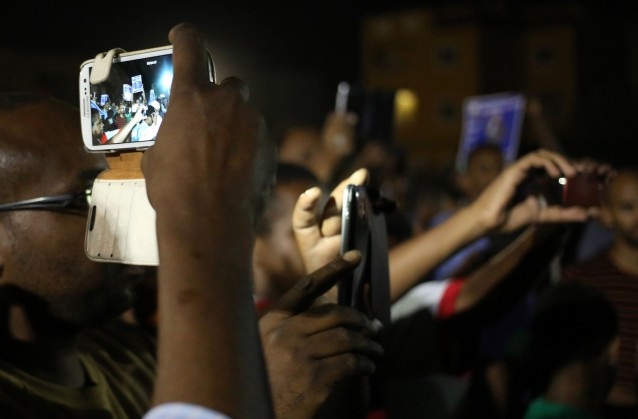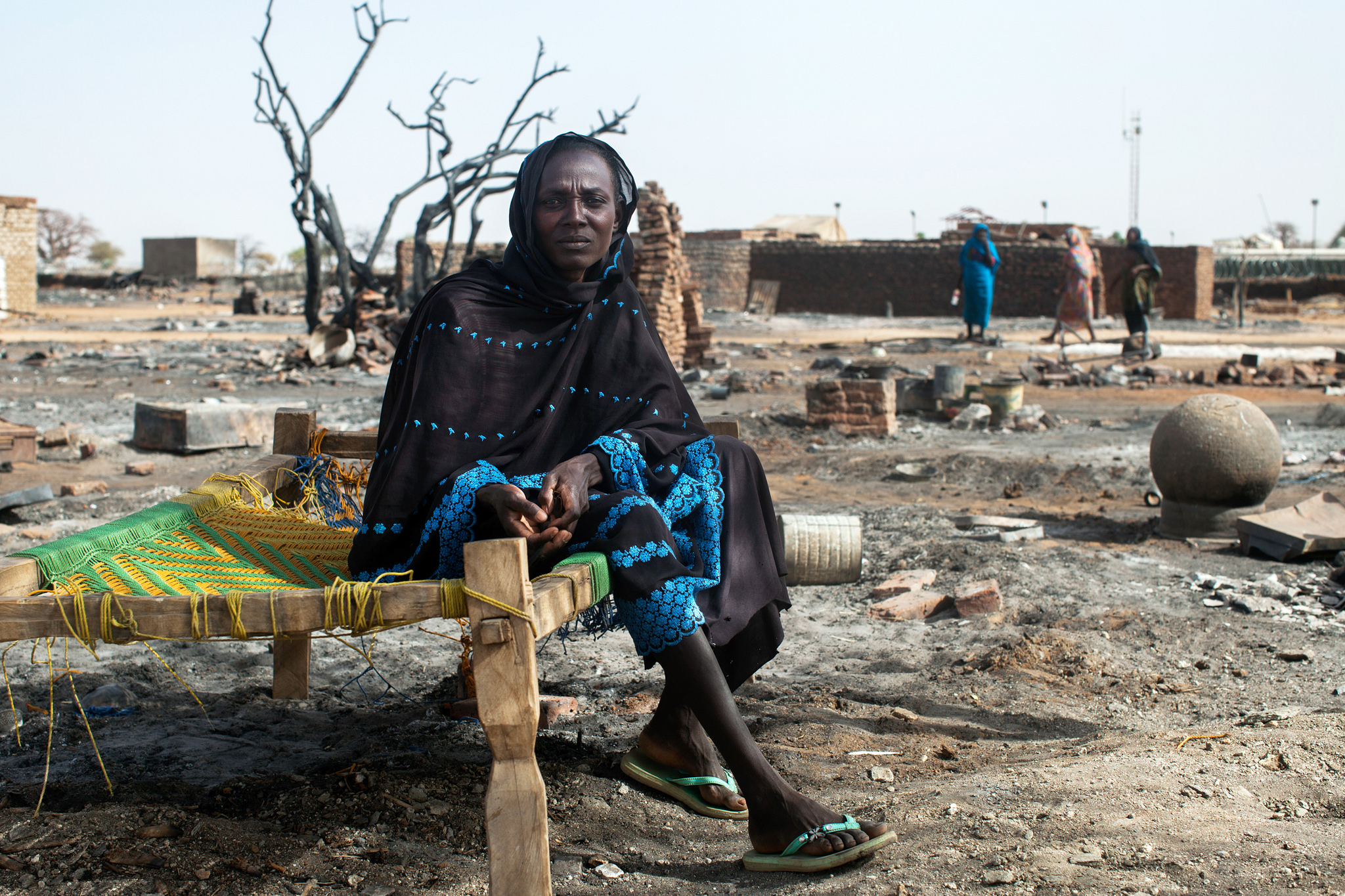Creating a Cost for Those Destroying South Sudan
President Obama’s upcoming trip to Ethiopia and Kenya offers an opportunity to reorient U.S. government policies to move beyond threats and focus on a much more robust strategy of disrupting and ultimately dismantling this system, which is funding, fueling, and profiting from the conflict in South Sudan ...
Testimony of Akshaya Kumar- The Current Human Rights Situation in South Sudan
Testimony of Akshaya Kumar, Enough Project Sudan and South Sudan Policy Analyst, before the United States Congress Tom Lantos Human Rights Commission hearing on “The Current Human Rights Situation in South Sudan,” given on July 10, 2015 ...
Enough 101: The GHRAVITY Executive Order and Sudan
In this 101, Sudan and South Sudan Policy Analyst Akshaya Kumar answers 5 questions about the GHRAVITY Executive Order (Grave Human Rights Abuses by the Governments of Iran and Syria Via Information Technology) and how it can be expanded to allow the U.S. to target the middle men and enablers of atrocities in Sudan ...
ThinkProgress: 7 Things You Need To Know About The Changes To U.S. Sanctions On Sudan

Editor's Note: This op-ed was written by Akshaya Kumar and originally appeared in ThinkProgress as "7 Things You Need To Know About The Changes To U.S. Sanctions On Sudan" on February 20, 2015 ...
Fool’s Gold: The Case for Scrutinizing Sudan’s Conflict Gold Trade
Gold coming from Sudan is conflict-affected, high-risk, and helping to destabilize the country’s main conflict-zones of Darfur, Blue Nile and South Kordofan, according to this new Enough Project report. "Fool's Gold: The Case for Scrutinizing Sudan's Conflict Gold Trade" details how civilians living in communities near these Sudanese gold mining sites have suffered killings, mass rape, and the torching of their homes and fields at the hands of armed groups, including the Sudanese army and government-backed tribal militias. The report also calls for urgent action by the United States, the United Nations, and the international gold industry to red-flag and ...
ThinkProgress: 7 Things You Need to Know About The Prayer Breakfast’s Second Most Controversial Guest
Ali Karti, Sudan’s foreign minister and primary diplomat, was invited to attend today's White House Prayer Breakfast, triggering protests from anti-genocide activists. In this ThinkProgress piece, Sudan and South Sudan Policy Analyst Akshaya Kumar answers 7 questions about Karti, the ongoing conflicts in Sudan, and the U.S. government's involvement in supporting peace in the country ...
Starving War, Feeding Peace, and Setting the Table for National Dialogue in Sudan
There is no doubt that some form of a national dialogue will be a key ingredient to a comprehensive peace in Sudan. But, to have a transformative effect on governance, that process needs to be meaningful, genuine, and inclusive. Despite hopeful signals in September 2014, Sudan’s nascent national dialogue process is currently none of those things. As it stands right now, the dialogue’s format remains imbalanced, exclusive and restrictive. Beyond problems with the structure of the process, the Sudanese government’s actions outside of the dialogue forum have further undermined prospects for genuine discourse about the way forward. But, this could ...
Extermination By Design: The Case for Crimes Against Humanity In Sudan’s Nuba Mountains
Our policy analyst Akshaya Kumar argues that the desperate situation of the people in rebel-controlled areas, the Sudanese government’s aid blockade, and indiscriminate attacks on civilians, along with statements recently attributed to senior commanders in the government forces, lay the foundation for a case of crimes against humanity by extermination ...
CNN Op-Ed: At the UN, Janjaweed is a Dirty Word

Ten years ago this week, then-Secretary of State Colin Powell declared that genocide had been committed in Darfur and that the government of Sudan and the janjaweed bore responsibility for those acts. Even though it did not actually trigger a legal obligation to act, many hoped that using the "g word" meant that the United States was crossing the Rubicon and committing itself to stopping the violence in Darfur, Sudan's most troubled region. The janjaweed, however, are still at large in Darfur -- and with the Sudanese government's help, they are now arguably more powerful than ever ...
Calls for Targeted Sanctions Grow Louder As South Sudan’s Leaders Miss #60DayDeadline
For the past two months, the Enough Project has been counting down to mediators' 60 day deadline to establish a transitional government of national unity for South Sudan. Now that the deadline has passed, a chorus of voices from across the globe have threatened South Sudan's leaders with punitive measures and targeted sanctions ...

